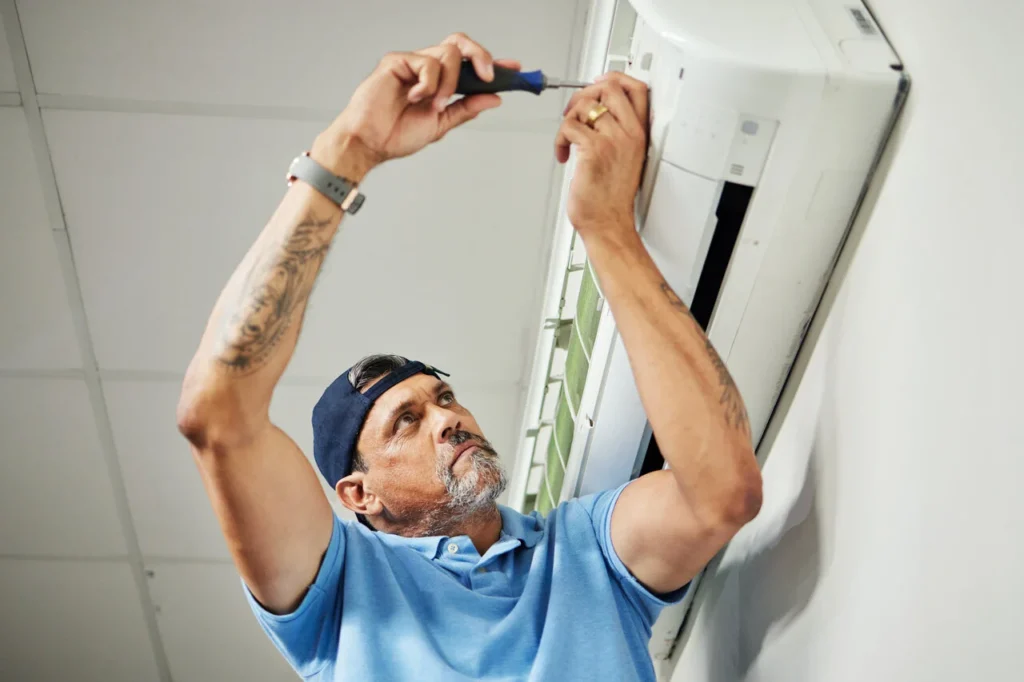An air conditioner keeps your home cool and comfortable, but when it breaks down unexpectedly, it can be a major problem. Some issues can wait for a scheduled repair, while others need immediate attention. If you’re in Joliet and facing a sudden AC failure, emergency AC repair Joliet services are here to provide fast and reliable solutions. Knowing when to call for emergency AC repair can save your unit from further damage and keep your home from turning into an oven.
Complete System Failure
If your AC suddenly stops working, it might be due to an electrical failure, a blown fuse, or a faulty capacitor. When the unit refuses to turn on, it’s a clear sign something is wrong. Before calling for emergency repair, check the thermostat settings and power supply. If everything looks fine and the system still won’t start, professional help is necessary.
Strange Noises Coming From The Unit
Air conditioners make some noise when they run, but loud clanking, banging, or screeching sounds indicate trouble. A broken fan blade, loose components, or a failing motor could be the cause. Ignoring these noises might lead to serious damage, so getting immediate assistance is the best approach.
Warm Air Blowing Instead Of Cold
When an AC starts blowing warm air instead of cooling your home, it could be due to a refrigerant leak, a frozen evaporator coil, or a failing compressor. In some cases, low refrigerant levels can also put extra strain on the unit, causing it to overheat. Since refrigerant leaks can be hazardous, it’s important to get a technician to assess the problem right away.
Frequent Cycling On And Off
If the AC constantly turns on and off without completing a full cooling cycle, it may be struggling with a clogged air filter, electrical problems, or a malfunctioning thermostat. Short cycling can cause unnecessary wear and tear on the system, leading to higher energy bills and potential breakdowns. Getting a professional to diagnose the issue can prevent long-term damage.
Water Leaking Around The Unit
Water pooling around your AC is not normal and could indicate a clogged condensate drain, frozen coils, or a refrigerant leak. If left unchecked, excess moisture can cause mold growth and water damage to your home. When you notice a leak, shutting off the system and calling for emergency repair is the safest step to take.
Unpleasant Odors From The Vents
Strange smells coming from the vents could mean mold growth, electrical issues, or even a burned-out component inside the unit. A musty smell suggests mold in the ducts or unit, while a burning odor could mean an overheating motor or damaged wiring. Either way, it’s a sign that immediate attention is needed.
Weak Or No Airflow
If the air coming from the vents feels weak or completely stops, a blockage in the ducts, a failing blower motor, or dirty filters might be the reason. Poor airflow makes the AC work harder, increasing energy costs and reducing efficiency. Addressing the problem quickly can prevent more expensive repairs.
High Humidity Indoors
An AC unit does more than cool the air—it also helps control humidity levels. If your home feels sticky and uncomfortable despite the AC running, it could indicate a problem with the evaporator coil or refrigerant levels. High humidity can lead to mold and mildew growth, so fixing the issue quickly is important for indoor air quality.
Electrical Issues Or Burning Smell
If you notice sparks, smoke, or a burning smell coming from your AC, turn it off immediately. Electrical problems can pose serious safety risks, including fire hazards. These problems can be caused by faulty wiring, a failing capacitor, or an overheated motor. Calling for emergency repair in this situation is a must.
Thermostat Malfunction
Sometimes, the problem isn’t with the AC itself but with the thermostat. If the temperature settings aren’t responding, the screen is blank, or the unit isn’t cooling properly despite correct settings, the thermostat might need repair or replacement. A malfunctioning thermostat can prevent your AC from working efficiently, leading to discomfort and higher energy bills.
Frozen Evaporator Coils
If you notice ice forming on the AC unit or refrigerant lines, it’s a sign that the evaporator coils are frozen. This can be caused by restricted airflow, a dirty filter, or low refrigerant levels. Turning off the AC and letting the coils thaw might help temporarily, but a professional should inspect it to prevent further damage.
Final Thoughts
Air conditioning issues can range from minor inconveniences to serious emergencies. If your unit suddenly stops working, makes strange noises, leaks water, or blows warm air, it’s time to call for emergency repair. Taking action early can prevent further damage and keep your home comfortable.



